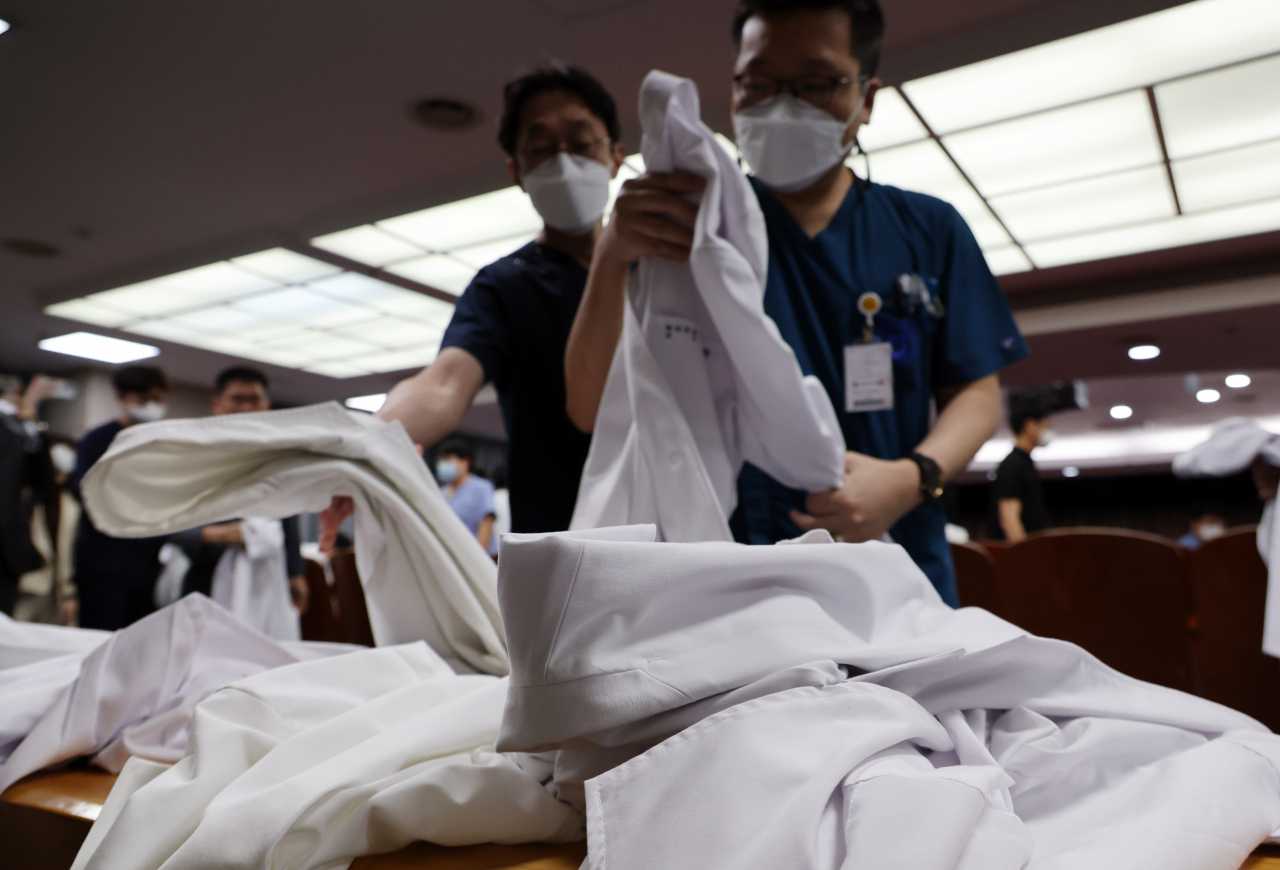
The Korean government said Monday it would deploy additional medical personnel to maintain health care services as medical professors are due to resign or take weekly breaks starting this week.
During Monday’s government response meeting, Health Minister Cho Kyoo-hong said the government would mobilize “all possible measures” to support the emergency medical system by dispatching more health care staff, such as public health doctors or military medical doctors, so that patients won’t bear the brunt of sudden resignations or absences by medical professors.
Cho added that the government would improve the working conditions of essential health care workers by increasing medical fees for interventional heart disease treatments.
According to the ministry, such treatments include essential medical procedures that need to be performed immediately on patients with severe heart conditions like acute myocardial infarction, more commonly known as a heart attack.
“(The government) will create (working) conditions where medical professionals in essential medical fields can receive fair compensation (for their work) and take pride in what they do,” Cho was quoted as saying.
For example, the fee for vascular stent treatment, which involves inserting a small mesh tube or stent inside a blocked blood vessel to keep it open, will be doubled from the current 2.27 million won ($1,642) to 4.63 million won. The scheme will apply to medical personnel at tertiary general hospitals who perform stent insertion procedures in four blood vessels.
The change will be applied from June 1 after adjustments are made to the salary standards notice.
The government also plans to increase compensation for those performing emergency treatments and those working on-call shifts. It will also discuss increasing compensation for the treatment of cerebrovascular disease and organ transplants at the medical reform committee’s second meeting scheduled for this week.
Second Vice Health Minister Park Min-soo told reporters during Monday’s briefing that the government would strengthen the compensation model considering the intensity and difficulty of the work being undertaken by medical personnel.
“Adequate compensation was not provided for serious cardiac interventions under the current fee-for-service system, so (the government) has strengthened measures to ensure appropriate compensation (for medical staff) by considering their workload, the difficulty (of medical procedures) and other factors,” Park said.
Meanwhile, Park noted the government is “willing to engage in one-on-one talks with the medical circle,” urging them to join the dialogue without any prerequisites as doctors have continuously demanded scrapping the quota hike.
Amid a protracted medical standoff, 9 out of 10 medical professors who have been filling the void caused by junior doctors’ walkouts are reaching their physical limits, a survey showed Monday.
According to a survey on levels of exhaustion and intentions for resignation conducted by the Medical Professors Association of Korea on 434 female medical professors for a week from April 12, some 92.4 percent of the respondents replied that their ability to work is nearing its limit due to long working hours.
Of the respondents, 376 said they have been working more than 52 hours per week.
![[Grace Kao] American racism against Stray Kids](http://res.heraldm.com/phpwas/restmb_idxmake.php?idx=645&simg=/content/image/2024/05/13/20240513050827_0.jpg&u=)




